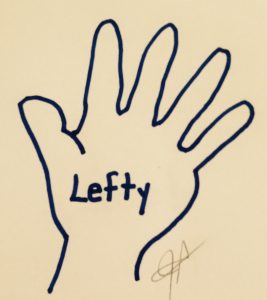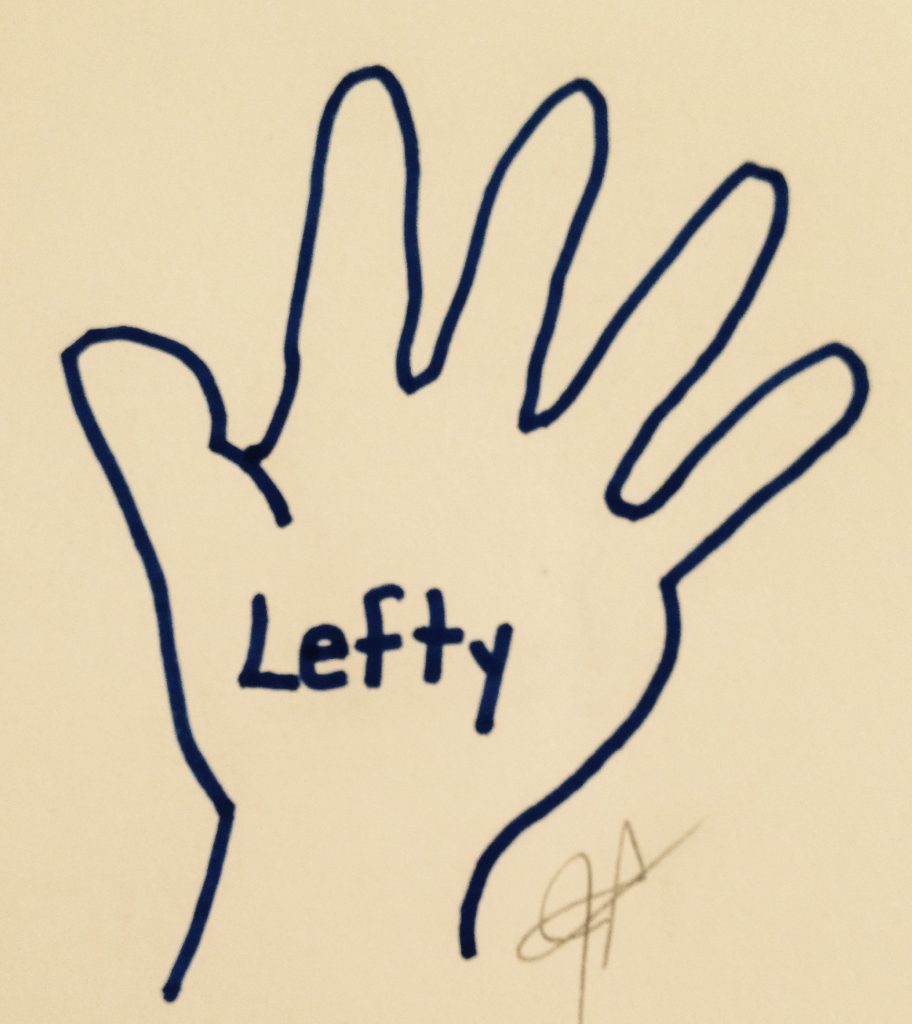 Young children often use both hands to perform tasks. They do not favor one over the other until around 8 or 9 months of age. By the time they reach the age of three, a preference of left or right is usually well developed. Roughly, 8 to 15 percent of the population is left-handed although some numbers can reach up to 30 percent.
Young children often use both hands to perform tasks. They do not favor one over the other until around 8 or 9 months of age. By the time they reach the age of three, a preference of left or right is usually well developed. Roughly, 8 to 15 percent of the population is left-handed although some numbers can reach up to 30 percent.
There are no clear causes for being either left or right handed. It may depend on both genetic and environmental factors. Left-handedness seems to run in families. It is not confirmed if the gene comes from the mother or father. According to Dr. Chris McManus the mother as the important factor. Research conducted by Clyde Francks from the Institute for Psycholinguists suggests the gene is inherited on the father’s side.
Is being left-handed a hindrance in school? Left-handers are often thought of as clumsy and awkward – quite understandable since most student desks, materials and tools are designed for right-handed students. Handwriting is challenging to lefties – leaving their left hand and paper marked with smears of graphite or ink as the hand travels over the paper. Musical instruments, like the guitar – designed for righties also prove troublesome.
Once students enter school, they become aware of his or her handedness. Feeling different from the norm, left-handed students face self-esteem issues. However, they become a very special group of students who are able to conform to a right-handed world.
The brain of a left-hander tends to be more flexible. As the two hemispheres of the brain communicate with each other, the left hemisphere can develop 11 percent larger than that of a right-handed person’s brain. This is said to be a result of functioning in a right-handed world.
Many left-handers are successful athletes. They become good baseball players because they have a different view of the field and the ball being pitched by right-handed pitchers. Many are excellent swimmers, boxers, and fencers.
Academically, left-handed persons seem to be highly intelligent – although there is no research to prove this to date. Some are better able to multitask, have better memories, and are better at playing video games. They are ideal for artistic pursuits because they tend to be visually oriented. On the negative side, a study by Joshua Goodman analyzed data from the U.S. and U.K. found that lefties make 10 to 12 percent less money annually than righties.
Educators and parents need to consider the challenges a left-handed student face. Accommodations to support the left-handed student such as supplies i.e. pencils, pens (quick drying), pencil sharpener, and PE equipment must be provided. Students should also be seated so the light comes from the right to avoid casting shadows over their work. Many websites are able to help educators and parents understand and teach left handed children. Additional information can be found for Teaching Left-Handers to Write, and www.lefthandedchildren.org.
Other than handwriting, left-handed students will learn and grow just like right-handed children, only from a different angle. Four of the past seven presidents have been left-handed. Artists such as M.C. Escher, Leonardo da Vinci, Michelangelo, and Rembrandt were left-handed.
In the past, our students had to endure disparaging nicknames and misunderstanding about being left-handed. They had to endure the slap of a ruler hitting their knuckles and the insistence to use the ‘right hand’. These problems have been overcome with research and better informed parents, educators, and physicians. Today’s information driven world helps us to work together to eliminate the problems a left-handed person faces throughout their school years.



